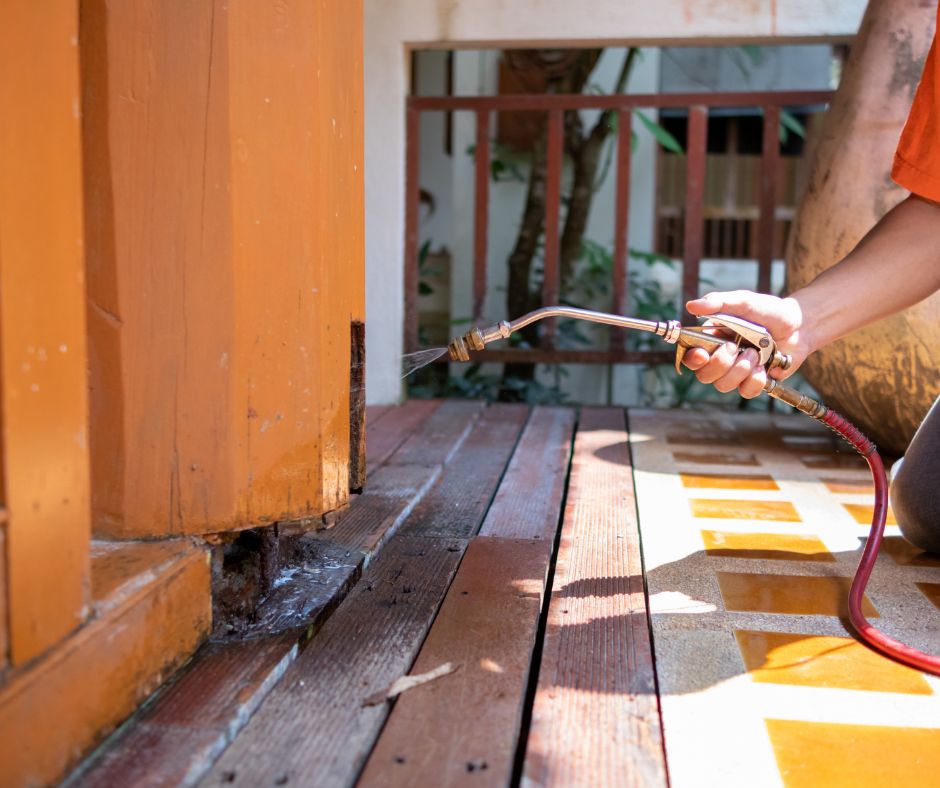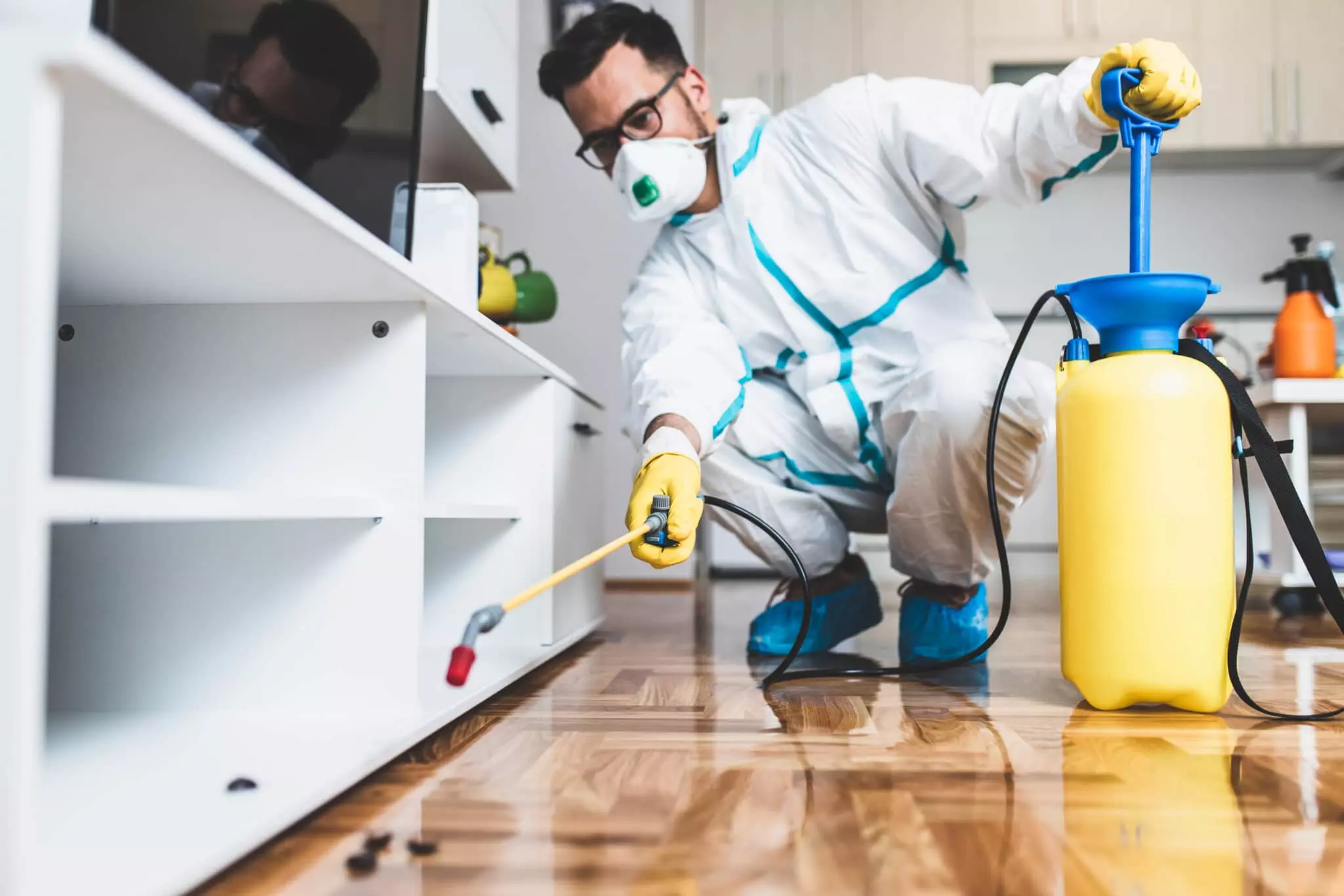Budget-friendly and Dependable Exterminator in Port Charlotte for All Your Requirements
Reveal the Value of Insect Control in Maintaining a Healthy And Balanced Atmosphere and Treatment Strategies

The Duty of Insects in Ecosystems
Bugs, typically viewed exclusively as nuisances, play a diverse role in ecological communities that is important for keeping environmental equilibrium. They contribute dramatically to various eco-friendly processes, consisting of pollination, vitamins and mineral cycling, and bug control. Numerous insect varieties, such as butterflies and bees, are crucial pollinators for a broad variety of plants, which in turn sustains biodiversity and food production.
Furthermore, parasites serve as victim for countless killers, creating an essential web link in food internet. This connection guarantees the survival of different varieties and aids regulate populations within communities (Termite treatment Port Charlotte). Moreover, decomposer parasites, such as certain beetles and fungi, contribute in breaking down raw material, therefore enhancing dirt and promoting nutrient recycling.
On the other hand, while insects can be advantageous, their overpopulation or invasion into non-native environments might interfere with these eco-friendly features. This intricacy highlights the value of comprehending insect dynamics, as effective parasite monitoring approaches need to think about both their environmental roles and potential influence on human tasks. Stabilizing pest existence while reducing harm is crucial for maintaining the stability of communities and guaranteeing farming efficiency.
Health And Wellness Risks Linked With Bugs
The existence of pests in numerous atmospheres extends past their environmental functions, as they also present considerable wellness dangers to humans and pets. Lots of insects, including pests, parasites, and rats, are carriers of illness that can have major health ramifications. For example, rats are understood to transmit hantavirus and leptospirosis, both of which can cause serious respiratory and kidney problems, respectively.
Insects such as ticks and mosquitoes are well known for spreading vector-borne illness like malaria, dengue fever, and Lyme condition. These diseases can cause high morbidity and mortality prices, particularly in susceptible populaces. Additionally, insects like insects and roaches can exacerbate allergies and bronchial asthma, adding to respiratory problems in people, specifically those with pre-existing problems.
Furthermore, the existence of bugs can bring about psychological stress and discomfort, affecting general wellness. Contamination of food and surface areas by parasite droppings and continues to be can cause foodborne diseases, highlighting the relevance of maintaining sanitary problems. Comprehending the health and wellness dangers associated with pests is essential in recognizing the need of reliable bug administration techniques to protect human and animal health.

Benefits of Efficient Parasite Control
Effective pest control is vital for keeping a healthy and balanced and safe environment, as it regularly alleviates the countless threats related to bug problems. Among the key advantages of efficient bug monitoring is the decrease of carcinogen. Parasites such as rats, roaches, and insects are vectors for diseases that can affect both pet dogs and human beings. By managing these populations, the possibility of disease transmission is significantly decreased.
In addition, effective parasite control safeguards building and structures from damage. Lots of insects, like termites and woodworker ants, can trigger extensive architectural damage that might require pricey repair work. By proactively managing these infestations, services and homeowners can protect their investments.
An additional significant benefit is the renovation of overall lifestyle. A pest-free setting adds to mental wellness and lowers anxiety associated with invasions. Additionally, effective parasite control promotes a much safer setting for youngsters and pet dogs, making certain that homes stay havens without damaging chemicals and disease-causing microorganisms.
Common Pest Control Techniques

In the realm of pest monitoring, different techniques are used to deal with infestations properly. These methods can be broadly classified into 3 primary approaches: social, mechanical, and chemical controls.
Cultural control entails customizing practices to minimize pest survival, reproduction, and facility. This may consist of plant rotation, correct cleanliness, and environment manipulation, which jointly create an atmosphere much less favorable to pest spreading.
Mechanical control uses physical approaches to eliminate insects (Termite treatment Port Charlotte). Methods such as barriers, traps, and vacuums are commonly utilized to straight get rid of parasites from a location. This approach is particularly effective for managing rodents and insects without making use of damaging chemicals
Chemical control includes the application of chemicals to handle bugs. These compounds can be categorized into fungicides, herbicides, and pesticides, each targeting details kinds of bugs. It is critical to make use of these chemicals carefully, sticking to security guidelines and regulations to minimize potential damage to non-target varieties and the official website setting.
Each bug control method has its constraints and benefits, and commonly, an integrated approach combining numerous techniques yields the most effective outcomes in preserving a pest-free environment.
Lasting Bug Administration Practices
Sustainable parasite administration practices incorporate a variety of techniques designed to lessen environmental influence while successfully managing bug populaces. These practices prioritize making use of eco-friendly techniques over chemical pesticides, thus reducing the threat of harm to non-target varieties, including beneficial bugs, wildlife, and people.
Integrated Pest Administration (IPM) is a cornerstone of lasting practices, integrating organic, cultural, mechanical, and chemical methods to handle parasites. For instance, organic control involves introducing all-natural predators or bloodsuckers to subdue insect populaces. Social practices, such as crop turning and polyculture, disrupt pest life cycles and boost community strength.
Mechanical methods, such as obstacles or catches, can effectively stop parasite access without chemical intervention. Furthermore, preserving healthy and balanced ecosystems through appropriate dirt monitoring, plant wellness, and biodiversity can naturally reduce insect problems.
Education and learning and recognition are vital components, empowering neighborhoods and people to acknowledge bug hazards early and implement safety nets. Termite treatment Port Charlotte. By fostering an alternative method that balances insect control with environmental stability, sustainable insect administration methods not only safeguard crops and structures yet also contribute to a much healthier setting for future generations
Conclusion

Recognizing the health and wellness dangers associated with parasites is vital in recognizing the need of efficient insect monitoring methods to protect animal and human health and wellness.
Effective parasite control is vital for maintaining a secure and healthy and balanced setting, as it consistently mitigates the countless risks you can check here connected with insect infestations.Integrated Bug Management (IPM) is a foundation of sustainable methods, combining biological, social, mechanical, and chemical strategies to take care of insects. By recognizing the role of bugs, recognizing involved wellness risks, and utilizing varied treatment methods, a lasting method to pest monitoring can be achieved. Integrated Insect Monitoring (IPM) emphasizes an alternative method that mitigates harm to valuable organisms while efficiently regulating pest populations.